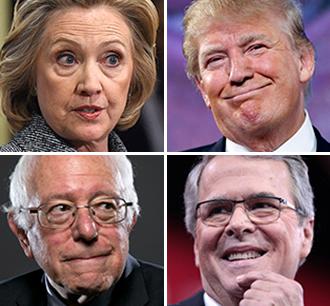China Understands US Space Program Weaknesses, US Needs To Prepare for Conflict
The 44-page report, titled “From Sanctuary to Battlefield: A Framework for a U.S. Defense and Deterrence Strategy for Space,” was written by New American Security Center senior fellow Elbridge Colby. Colby previously served in the United States government, and in 2012 was the Chinese policy adviser for presidential candidate Mitt Romney. In the report, China and Russia were often bound together as the United States’ “space adversaries,” and China was mentioned about 20 times.
The report said that China, Russia, and other countries are acquiring capabilities for the containment of United States satellites, such as anti-satellite missiles, and Internet and other electronically based attack methods. Some capabilities may be able to destroy United States satellites, while others may simply be able to render them ineffective. Because of these new anti-satellite capabilities, United States space assets are becoming less effective. The report referred to China’s 2007 anti-satellite experiment as proof of China’s abilities in space and predicted a scenario in which a conflict would occur with China. China currently has DF* missiles positioned for attack on United States naval vessels. If United States satellites were to come under attack, the U.S. military could choose to destroy the part of the Chinese satellite system that provides navigation and positioning for these DF missiles.
The report quoted Director of National Intelligence James Clapper saying that after the year 2015, Chinese and Russian threats to the United States space system will increase. U.S. Department of Defense official Frank Kendall said last March that the United States’ position in space is “particularly bad” because of the improvements that China and Russia have made to their anti-space satellite capabilities. The report says that once a war breaks out with China or Russia, the United States will be unable to rely upon England, Japan and Australia, even if satellites were being shared among countries. In the case of war, “the end of an era of United States space leadership will become a reality.” During an interview with The Washington Post on Jan. 28, Colby said, “Space is a classic example of the American military leadership facing challenges. There is no reason to think that China or Russia will exercise restraint when developing in space.”
In order to respond to possible “space adversaries,” the report advised that the United States should first utilize space weapons to gain victory, even if it is just a local victory. Secondly, the United States should exercise restraint with potential enemies and should not utilize nuclear weapons or other methods to escalate hostilities. The report says that Washington should encourage China and Russia to enter into the Outer Space Treaty, led by the United States.**
The Center for A New American Security was founded in 2007 by Assistant Secretary of State for East Asian and Pacific Affairs Kurt Campbell. Many members of the think tank have previously worked for the White House, the State Department, Congress and other government departments.
According to the report issued on Jan. 28, as reported in the Japanese newspaper The Financial Times, the United States and Japan decided to extend operations of the International Space Station for four more years, ending in the year 2024. Concerned parties fear that if the ISS were to shut down in 2020, China might establish a space station two years later in 2022, and many countries interested in space exploration would approach China. A cosmic version of the Asian Infrastructure Bank, this space station would not only increase China’s influence, but could also cause European military technology to flow into China, which could use these technologies to increase its capabilities for war in space.
*Editor’s note: DF refers to Dongfeng missiles, or “East Wind” missiles.
**Editor’s note: The Outer Space Treaty is formally known as the "Treaty on Principles Governing the Activities of States in the Exploration and Use of Outer Space, including the Moon and Other Celestial Bodies," and forms the basis of international space law.

